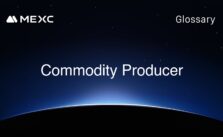Collateralization
Collateralization refers to the process by which a borrower secures a loan by offering assets as a guarantee to the lender. If the borrower fails to meet the repayment terms, the lender has the right to seize the collateral to recover the loan amount. This financial mechanism is pivotal in reducing the risk of credit...
Commitment Scheme
A commitment scheme is a cryptographic protocol designed to allow one party to commit to a chosen value while keeping it hidden from others, with the ability to reveal the committed value later. This scheme is crucial in various applications where the integrity and confidentiality of a transaction or data must be safeguarded until a...
Commodity Futures Trading Commission Hearing
The Commodity Futures Trading Commission Hearing (CFTC Hearing) is a formal proceeding where the Commodity Futures Trading Commission reviews and evaluates matters related to the regulation of the U.S. derivatives markets, including commodity futures, options, and swaps. These hearings can address a range of issues from enforcement actions, regulatory rulemakings, to broader market concerns. Significance...
Commodity Producer
A commodity producer is a company or entity that engages in the extraction or production of raw materials that are essential for manufacturing and energy production, such as oil, natural gas, metals, or agricultural products. These producers play a pivotal role in the global economy by supplying the basic materials required for various industries and...
Community Fund
A "Community Fund" refers to a pool of capital specifically allocated for the investment and development of projects that benefit a community, either defined by geography or shared interest. These funds are often used to support initiatives that promote social, economic, or environmental benefits, with a focus on sustainable and inclusive growth. Recent data indicates...
Community Token
A community token is a type of cryptocurrency that represents a stake or membership in a specific community, often used to incentivize participation and engagement within that group. These tokens are typically issued on blockchain platforms and can be used for voting, governance, or accessing specific features or services within the community. Emergence and Evolution...
Composable Rollup
In the realm of blockchain technology, a Composable Rollup is a Layer 2 scaling solution that allows multiple applications to operate on a single rollup chain. This innovative concept aims to enhance scalability, interoperability, and efficiency of blockchain networks. Understanding Composable Rollups Composable Rollups emerged as a response to the limitations of the Ethereum network,...
Confirmation
The process by which transactions are validated and added to the blockchain, ensuring that they are irreversible and considered final. Confirmations provide increased security against double-spending attacks and other forms of fraud.
Confirmation Time
The amount of time it takes for a transaction to be confirmed and added to the blockchain. Confirmation times can vary depending on the blockchain's consensus algorithm and network congestion.
Consensus
The process by which participants in a blockchain network reach an agreement on the state of the ledger and the validity of transactions, ensuring that all copies of the blockchain remain synchronized and accurate. Consensus mechanisms include Proof of Work (PoW), Proof of Stake (PoS), and others.
Explore the MEXC Blog Glossary Archive to deepen your understanding of cryptocurrency and blockchain technology. This comprehensive resource features clear, easy-to-understand definitions of key crypto-related terms, concepts, and industry jargon. Whether you’re a beginner or an experienced trader, the glossary helps you stay informed, make smarter investment decisions, and navigate the fast-evolving crypto landscape with confidence. Start learning today and boost your crypto knowledge with MEXC!


